Choose Quality Investments for a Rewarding Life: Delta Thailand’s IR Director Shares Keys to Long-Term Growth and Success
By David Nakayama - Published April 12, 2024
.jpg)
Interview with Ms. Anchalee Jieratham, Investor Relations Director at Delta Thailand
Samutprakarn, Thailand, April 11, 2024- Since 1995, Delta Thailand has been listed on the Stock Exchange of Thailand (SET) and today we are proud to be both a regional subsidiary of Delta Group and a key production hub and engine for Delta’s worldwide growth. As a listed company known for growth and ESG performance, Delta is responsible for providing benefits to our stakeholders including investors.
Leading our Investor Relations (IR) is Ms. Anchalee Jieratham from Thailand who took time out of her hectic schedule to share with us her amazing story of relentless exploration, upskilling and challenge in the business and finance world. Her track record of success, deep financial expertise and unique ability to influence key decision-makers make her the perfect business partner to management and our IR leader supporting Delta’s future growth.
As a local female leader, she also gives advice for women looking to succeed and shares secrets to balancing career development and parenting. A key takeaway from her fascinating life story is to choose the right career path and a results-oriented manager with the right domain expertise to see your potential.
Can you tell us about your background and your career journey?
I graduated with a bachelor's degree in business administration. I started out in a variety of sales and marketing positions for consumer products. Then I worked in sales channel development for a few years in my family business related to building hardware and construction materials. Here, I came to realize that the bottom line, or net income after all expenses, was what matters most for business vitality. So, I decided to pursue a master’s degree in finance at Chulalongkorn University.
I wanted to further my studies abroad but the “Tom Yum Goon” economic crisis hit Thailand in 1997 and badly hurt my family business. I continued my education locally while working in customer service support at DTAC, the country’s second-largest telco operator back in the 2000s. The telecom business was evolving fast with technology migration from 2G to 3G and 4G and DTAC provided tremendous opportunities for employee growth and development.
After earning my finance degree, I started my finance career in the Corporate Finance Division. I spent seven years at DTAC in a variety of positions with progressively challenging responsibilities in a fast-paced environment. Some of the major roles I took were financial forecasting, budgeting, management reporting, strategic financial planning, tariff and price plan analytics, and most notably the secretary to the investment committee.
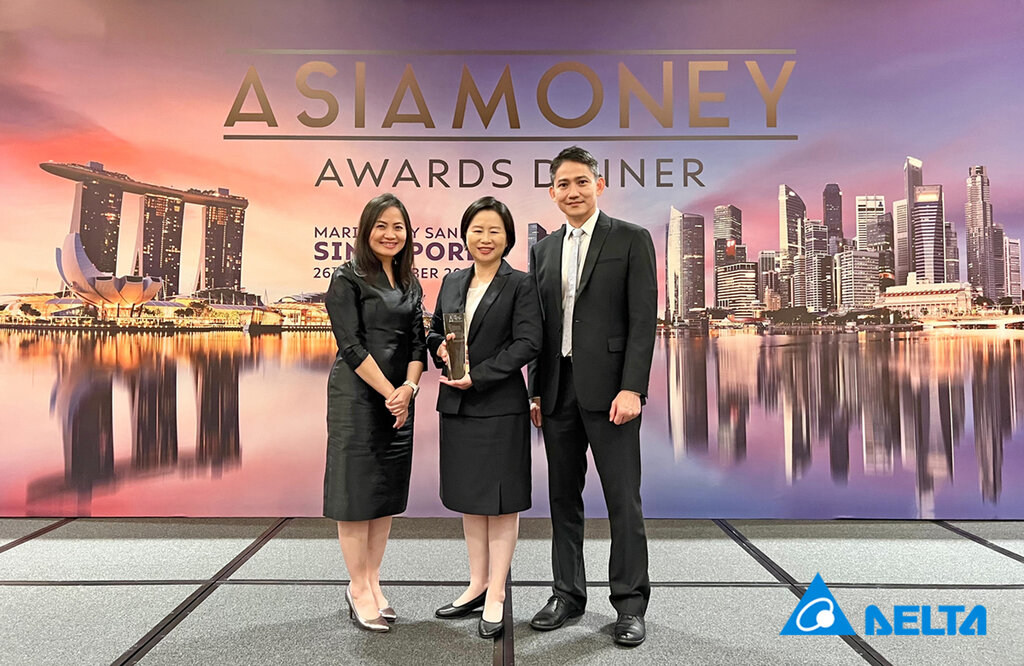
How did you transition from Finance to Investor Relations, and what is special about this field?
Telecoms is a capital-intensive industry so it’s critical to ensure the Capital expenditures (CapEx) frame (funds to acquire, upgrade, and maintain physical assets) is well spent for various technology deployments like radio network expansion, IT upgrades, alongside commercial marketing initiatives and customer experience projects. We assisted colleagues across the organization in preparing the investment proposal analysis and justification to ensure the investment committee made an informed decision. I stepped up to the fast learning pace on various business aspects and made close friendships through successful project executions. At a certain point in time, my boss thought I was a good fit to rotate and expand my role in the Investor Relations (IR) Department based on my knowledge about the company coupled with my financial skills. That was more than ten years ago, and the decision truly made a difference in my next chapter of career development.
It didn’t take long for me to realize that IR work is the perfect combination of extensive “number-crunching” and crafting strategic communication, which is the creative and exciting part that allows you to meet up with many smart people and interact with senior management to gain deep insights towards the company’s intrinsic value. This requires a broad skillset to interact with different functions and represent the company to the investing public while ensuring the value of the company has been reflected in line with the underlying fundamentals.
What are the advantages for a company like Delta Thailand to become public, and why do public companies need Investor Relations?
There are a few common misconceptions about companies going public. Some people may think that an Initial Public Offering (IPO) on the stock exchange will make the founders wealthy overnight. However, this is far from the norm. Shareholder wealth is contingent on stock performance which varies widely based on market conditions and investor sentiment, and poor market perception can lead to less-than-expected outcomes. Another myth is many believe that an IPO is the ultimate destination. The reality is that an IPO is just one form of an exit strategy or funding mechanism, not the end game.
It’s not all rosy either. The journey to public listing is complex, demanding, and unique to every company. It is a time-consuming and rigorous process involving extensive due diligence, regulatory filings, investor roadshows and more. A successful IPO is also merely a milestone, not a guarantee of long-term success. The real measure of success is the company’s sustained performance, solid fundamentals, a sound and proven growth strategy, and stock price acceleration over time which delivers significant long-term shareholder value.
However, some advantages for a company to go public include strengthening the capital base, making acquisitions easier, diversifying ownership and increasing prestige. Moreover, publicly listed companies are often perceived as more reputable and stable. However, increased credibility comes with the need for rigorous compliance and regulatory obligations. This is why a publicly listed company needs a professional IR to meet the expectations and requirements of regulators, shareholders, and the investing public.
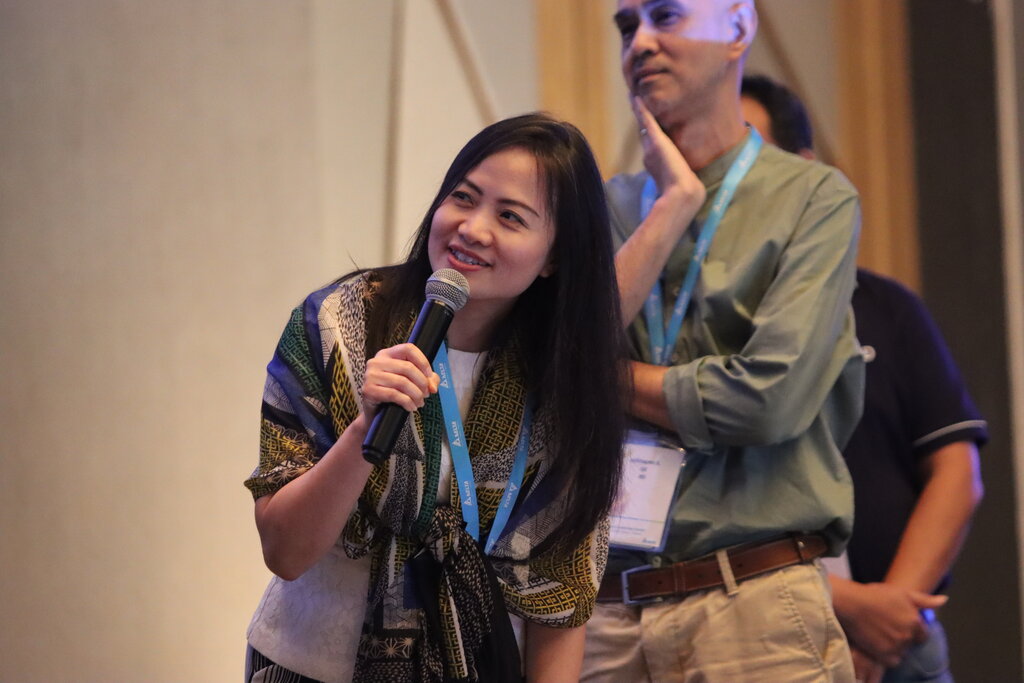
What are some of your key tasks as the head of our Investor Relations, and how do you support our managers and organization’s success?
I manage the corporate investor communications program, both for compliance and relationship-building purposes. We aim to strengthen and sustain strong positive credibility with the investment community. To craft the equity story, we need to monitor and analyze in-depth corporate financial and operating performance metrics for the investor relations function.
This is where we also interface with various functions in the company to obtain necessary data and support. We also disseminate and position corporate messages through a strong and efficient, transparent line of communication so that an investor can identify potential areas of growth, partnership, or new business angles of the company.
Overall, we take the lead in providing complete information to analysts and investors through quality presentations, and virtual and physical interactions. Through this process, not only do we reflect the value of the company from inside out, but we also capture the street views and feedback from outside in to inform our management.
It’s a kind of two-way communication process that provides actionable insights to top management. Moreover, it’s also important that we monitor dynamic expansion into new business verticals that lead to strategic and operational changes. In this regard, we got good support from management to effectively develop investor relations messages based on these changes.
Your job demands a combination of expertise in investment finance and emotional intelligence to effectively influence decision-makers. In your opinion, what are the most important technical and interpersonal abilities to be a domain expert and people leader?
A finance degree and professional certifications are critical technical skills to succeed in this work whether you choose to go into the banking industry or stay on the corporate side. From the IR perspective, you are like a salesperson of the company’s financial statements and its underlying business fundamentals. So, you are qualified if you possess the technical skills to showcase figures and are able to address them in a fair and transparent, yet strategic manner. At the same time, business acumen, interpersonal and communication skills are important for a great sales pitch to the smart people in the investment community.
In the leadership aspect, I must say the IR function is quite unique. The structures of IR teams vary widely: some companies distribute IR responsibilities across different functions. Generally, the IR team consists of only 2-3 members on average, subject to roles and responsibilities alongside the market cap size in the Stock Exchange. While I may not be managing people in a team, a large part of the IR function interfaces with top management and senior leaders in various fields. I must lead as an expert and business partner.
The most important ability to being a leader in my view is when you have the talent to see the potential of your people and then channel your efforts towards developing them to grow and motivating them to achieve their goals. I was lucky to have chances to work for great leaders who coached and offered me an opportunity for growth and change.

IR plays a big part in our brand awareness and reputation, what are some things you find most exciting in your work with the media as a spokesperson for Delta?
As a spokesperson to the investing community, we have an understanding of our stakeholder’s perception and key focus. Our role is to address their concerns and shape their expectations in line with our company fundamentals and growth prospects. In fact, investors who are drawn by hype may not stick around for the long haul and this can lead to share price volatility. Personally, I admire the top management at Delta Thailand as they focus on business achievements rather than short-term stock price movements.
In regard to the media interaction, we focus on providing support to top management in the press conference as part of the corporate events and also participate in the management interviews with media outlets. Our role here is to support the financial figures and ensure the business performance messages are streamlined across each channel. The exciting part is that media is quite unpredictable, each with differing backgrounds, agenda and points of interest. So, we have to pay close attention to understanding the objective to support our management in these high-visibility events.
Overall public listing undeniably offers a higher degree of visibility. We need to strike a balance. Greater exposure also means greater scrutiny from shareholders, the media, and regulators. This can lead to challenges if not managed well. Excessive media attention to financial performance could also lead to inflated stock prices and subsequent crashes if the company's performance does not meet expectations.
During the ups and downs in the market, how does Delta IR help the company maintain a good relationship with investors and protect our brand reputation?
We anticipate the changes that the company might need to undergo and ensure IR has the skills to provide value in those new environments. We keep the long-term strategy intact while addressing near and mid-term opportunities and catalysts. What investors need to know is that the company can weather the storm and when things go back to normal. This will determine if your business is resilient enough to bounce back.
Building relationships on the capital market is a marathon, not a sprint, and you need to maintain your pace both uphill and down. Persistence and balance are required to reach the finish line, and along the way your fan base will grow if you build the right profile.

How do you balance your career and personal life? What are some things you like to do to de-stress during your off time?
Family and work-life balance was a big consideration when choosing whether to go for a banking industry career track or to continue my IR journey on the corporate ladder. I found IR to be the best match for an active working mother of three children at elementary and high school. My older children are more familiar with their mom’s working cycle which has a peak and off-peak period around the earning seasons. However, my youngest one is quite demanding, and this remains a challenge to create more time for her.
I just keep trying to have quality family time even though it’s limited. With good support from my spouse, our parents and relatives, we manage to take care of all the logistics and everyday care for everyone. It would never have been possible without all my loved ones whom I truly appreciate. On weekends, we enjoy movies and food together. We take the kids to extra-curricular activities like piano, ballet, badminton, swimming or even the Thai boxing gym to drain out their energy.
These are all my relaxing moments just sitting and watching them. Occasionally, I also join a concert with my teenage girls even though I have no idea who the artist is. Parenting is the thing I most like to engage in during my after work hours and it indeed is a lifetime pleasure!
Overall, in what ways has the Investor Relations practice evolved during your career, and how are new global trends like ESG and sustainable investing shaping your professional field?
Over time, we have seen corporations investing in their IR strategies and teams: deploying new tools and technologies, publishing new ESG materials and reports, hiring expertise, submitting data and adhering to reporting frameworks. The investor relations role has continued to evolve and become increasingly strategic with many increased responsibilities, and the past two years have accelerated this change with two key drivers digitization and the ESG agenda.
One impact of COVID-19 is the digitization of IR to engage more investors and move to virtual/online platforms. We achieved greater time and cost efficiency while broadening our target investor outreach. Now a gradual return to in-person events is underway. Last year we resumed only two physical international investor conferences, but in 2024 we see an uptick to seven times in Delta’s participation in regional and global investment summits.
An emerging consideration for IR strategies is changing investor demographics. This may reflect the prominence of ESG issues for younger generations of investors as part of broader societal changes, and the increase in retail interest in capital markets during the pandemic. It’s important that IR teams feel well-equipped to manage and navigate the new environment. I think smaller firms without dedicated IR teams feel less confident in their ability to adapt and access appropriate resources.
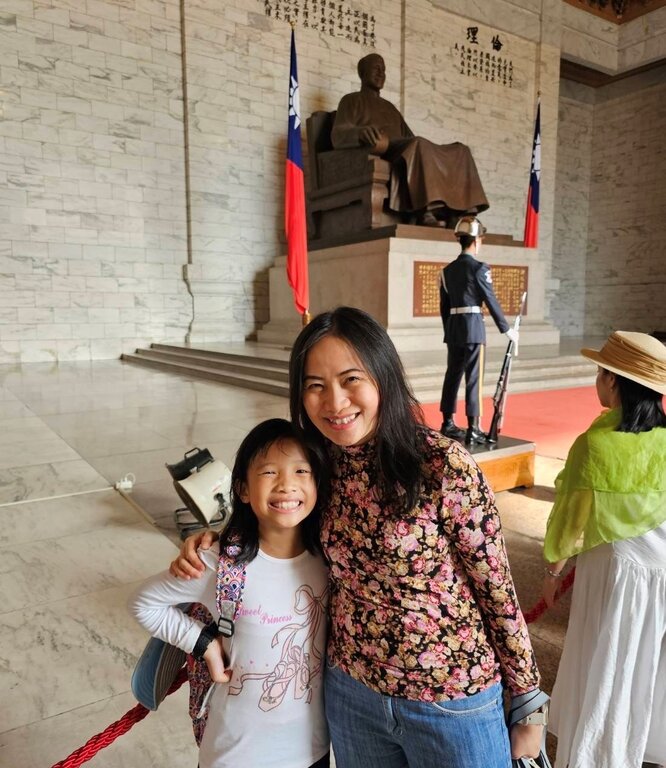
What is your advice for young women who want to contribute and influence others but are still lacking the confidence to showcase their full potential?
When I was young, I always admired those women in the front who worked relentlessly and had a meaningful impact on others. I wonder what took them this far and how tough the journey was for them. Being exposed to work with many high-profile women professionals today, I could say they are dedicated, hard-working and with perseverance, result-oriented and resourceful in getting the job done. Women have different ways of approaching things and that’s the beauty of diversity and inclusion.
You must believe you have the ingredients to contribute to the perfect dish, potentially with a different style of cooking and processing. Continue to develop your strengths, make good friends along your career path because they will stand by you and make you smile through some of the most stressful days, and of course, do not forget to stay beautiful in your own way and healthy.
Whenever opportunities arise, I would suggest going for it with a positive attitude! Great work doesn’t always require decades of experience, you just need a leader who is willing to take a chance on you, and then you give out your very best efforts.
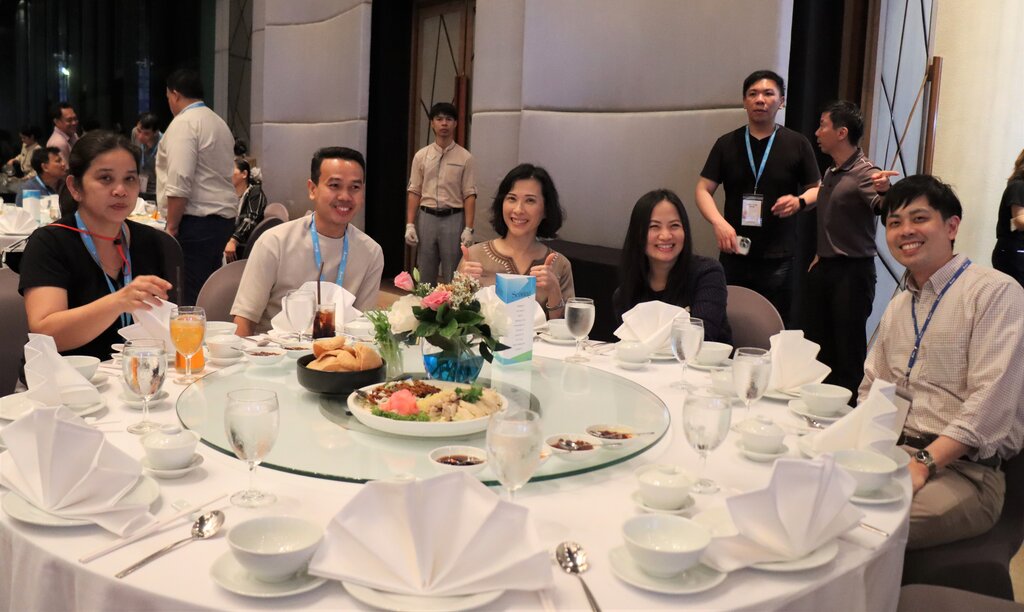
Finally, is there anything you would like to share with your Delta colleagues around the world?
I joined Delta two years ago and it has been an enriching journey so far. Delta’s legacy is valuable and inspires us to achieve future successes. It is my privilege to have this opportunity to serve such a great organization full of talents around the world who spend each day sustaining and improving life for our customers, our families, our communities and our planet.
My part every day is to think about how I am going to reflect Delta not only as a quality investment choice but also as a company built for sustainability that genuinely cares for our society and environment. Obviously, there’s a long road ahead and hopefully, together with my Delta colleagues around the world, we can continue creating success stories for decades to come.


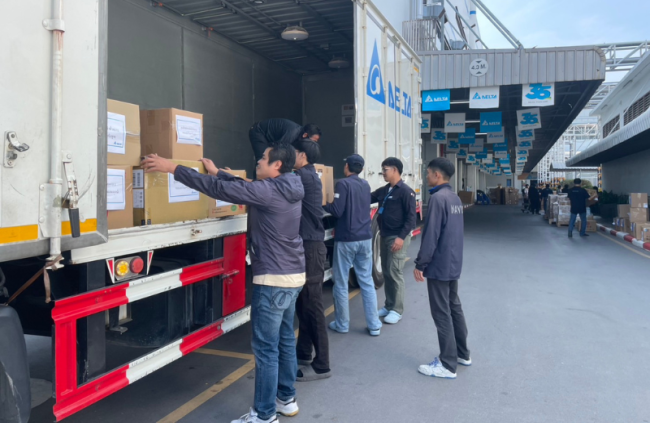

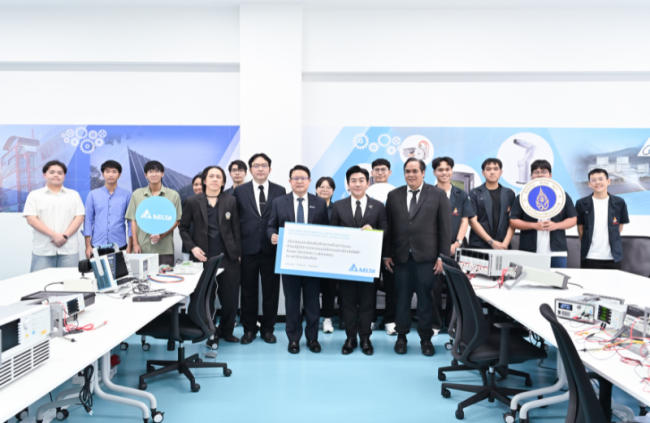
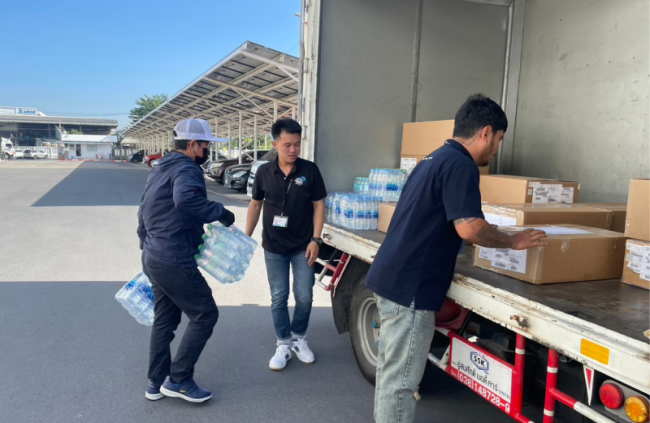
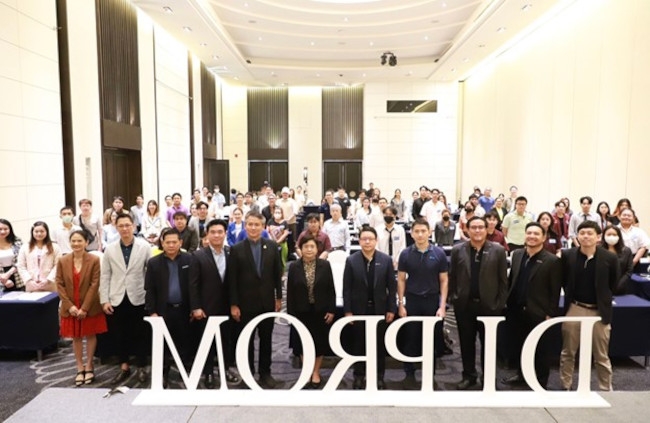

Rangsinee May 17, 2024 at 16:51:39 pm
ชอบบทสัมภาษณ์ของคุณอัญชลี เจียรธรรม เป็นแรงบรรดาลใจการทำงานที่ดีมากเลยค่ะ ขอบคุณทีมบรรณาธิการที่ทำให้รู้จักแผนก IR ของเดลต้า ซึ่งไม่เคยรู้จักแผนกนี้มาก่อนเลยค่ะ